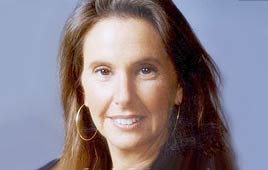
Dankner, Tshuva must sell off holdings
Calcalist maps some of immediate implications of concentration committee's recommendations: Nochi Dankner will have to part with Clal Insurance, Yitzhak Tshuva – with Phoenix. Bronfman, Ofer families can breathe a sigh of relief
The recommendations fall into two main categories: The separation between real and financial assets and the restrictions on large pyramid companies and holders of controlling interest.
Today there are several major business groups in Israel. The aggregated sales of six of them constitute some 25% of the country's GDP and the top ten groups lead some 50% of Israel's bond offerings.
The committee now has to deal with the tricky stage of turning its recommendations into binding conclusions whereupon it must tread a tortuous path along which it first will hold a hearing for companies which might be effected by the recommendations and then setting a legislation process in motion via the relevant Knesset committees and a plenum vote on the bill.
Following is Calcalist's map of the winners and losers of the asset separation move:
Recommendation to increase competition
1. A substantial real corporation or the holder of control over such a corporation will be prohibited from holding a substantial financial corporation as well.
A substantial financial corporation: One that manages over NIS 50 billion ($13.5 billion) in assets – 2.5% of the economy.
A substantial real corporation: One with sales revenues that exceeds NIS 8 billion ($2 billion) – some 0.5% of the market's overall sales revenue, or a corporation with a balance of over NIS 20 billion ($5.5 billion).
2. Director will be prohibited from sitting on the board of a substantial financial corporation while at the same time serving on the board of a substantial real corporation.
3. Pyramid companies will be subjected to new restrictions. A pyramid corporation is one comprised of a succession of companies in which each controls the company below and all of them are headed by the same owner of controlling interest.
Questions that remain unanswered
1. How often would the adherence to the real and financial asset separation criteria be inspected? Will it be subjected to updates?
2. What means are at hand to enforce the obligation of financial data disclosure on companies?
3. Will the restriction on real holdings derive from the economy's revenue?
4. How often will the restriction on real holdings be updated?
5. On the basis of what criteria was the 0.5% of the economy's revenue bar set?
6. Which stipulations are there for advising the antitrust commissioner as regard sell offs of infrastructures?
7. Is the opinion of the antitrust commissioner binding?
Matthew Bronfman
1. Substantial financial asset: Bank Discount with assets worth NIS 186 billion ($51 billion).
Insubstantial real asset: IKEA Israel with annual earnings of NIS 678 million ($185 million) and a balance way below the NIS 20 million ($5.46 million) mark.
Implications of the committee's recommendations: the Bronfman family will be allowed to hold on to both companies.
2. Directors in financial and real corporations: Professor Ben-Zion Zilberfarb sits of the boards of Discount Bank and Delek Group.
Shari Arison
1. Substantial financial asset: Hapoalim Bank, with assets valued at NIS 324 billion ($88.5 billion).
Insubstantial real asset: Housing & Construction with assets worth NIS 4.9 billion ($1.3 billion) and a balance of NIS 8.6 billion ($2.35 billion).
Implications of the committee's recommendations: Will be allowed to hold on to both companies.
2. Directors in financial and real corporations: Irit Issacson sits on the boards of Bank Hapoalim and IDB Development; Nehama Ronen – sits on the boards of Bank Hapoalim and Israel Refineries.
Zehavit Cohen
1. Substantial financial asset: Psagot Investment House, with assets of NIS 140 billion ($38 billion).
Insubstantial real asset: Tnuva, with a sales volume valuated at NIS 7.5 billion ($2 billion).
Implications of the committee's recommendations: Will be allowed to hold on to both companies. The Phoenix holding is teetering on the threshold of the committee's criterion for a substantial financial company; the committee's bar is also a constraint on Tnuva's growth capacity. Since the Psagot holding falls under the substantial financial criterion, any future acquisition Psagot will perform will be subjected to this stipulation.
2. Directors in financial and real corporations: Zehavit Cohen – sits on the boards of Psagot and Israel Corporation.
Yitzhak Tshuva
1. Substantial financial asset: The Phoenix, with holdings worth NIS 10 billion ($2.7 billion).
Substantial real asset: Delek Group, with annual earnings of NIS 50 billion ($13.5 billion, including proceeds from the Phoenix) and a balance of NIS 96 billion ($26 billion).
Implications of the committee's recommendations: will have to sell either the Phoenix or Delek. If Tshuva sells Excellence investment house, which manages assets worth NIS 64 billion ($17.5 billion), he will be left with a leaner corporation but still one that falls under the category of a substantial financial corporation.
2. Directors in financial and real corporations: Elad Sharon Tshuva – sit on the boards of the Phoenix and Delek Group; Asaf Bartfled sits on the board of Delek Group.
Muzi Wertheim
1. Substantial financial asset: Mizrahi Tefahot Bank with assets of NIS 139.2 billion ($38 billion).
Insubstantial real asset: The Central Bottling Company, with asset valuated at NIS 4.5 billion ($1.2 billion) and a balance bellow NIS 230 million ($63 million).
Implications of the committee's recommendations: May continue to hold both companies.
2. Directors in financial and real corporations: Avraham (Beiga) Shohat and Moshe Vidman both sit on the boards of Mizrahi Tefahot and Israel Chemicals.
3. The corporation will be subjected to new restrictions under the pyramid corporation clause.
Liora and Doron Ofer
1. Substantial financial asset: Mizrahi Tefahot, with assets of NIS 139.2 billion ($38 billion).
Insubstantial real asset: Melisron, with annual earnings of NIS 462 million ($126 million) and a balance of NIS 15.3 billion ($4 billion).
Implications of the committee's recommendations: Will be allowed to hold on to both companies.
2. Directors in financial and real corporations: Avraham (Beiga) Shohat and Moshe Vidman both sit on the boards of Mizrahi Tefahot and Israel Chemicals.
Nochi Dankner
1. Substantial financial asset: Clal Insurance with assets worth NIS 170 billion ($46.5 billion) – a substantial real holding; Shufersal, with annual earnings of NIS 11.5 billion ($3 billion) and a balance of NIS 6.7 billion ($1.8 billion); Makhteshim Agan, with annual assets worth NIS 9 billion ($2.46 billion) and a NIS 13.6 billion ($3.7 billion) balance.
Implications of the committee's recommendations: will have to jettison either Clal Insurance or Shufersal and Makhteshim Agan. Dankner has already begun talks for the sale of Clal Insurance; however, negotiations with potential buyer, the Premiera Fund, fell through. Furthermore, Dankner already signed an agreement for the sale off of Makhteshim Agam to Chemchina which means that if the deal comes to fruition, Dankner will be left with one substantial real holding – Shufersal.
2. Directors in financial and real corporations: Nochi Dankner sits on the boards of Clal Insurance, Shufersal and Makhteshim Agan; Yitzhak Manors sits on the boards of Clal Insurance, Shufersal and Makhteshim Agan; Eli Cohen sits on the boards of Clal Insurance and Shufersal.
3. The corporation will be subjected to new restrictions under the pyramid corporation clause.
Zadik Bino
1. Substantial financial asset: The First International Bank, with assets of NIS 99.1 billion ($27 billion).
Substantial financial asset: Paz Oil Company with annual earnings of some NIS 15 billion ($4 billion) and a NIS 12.5 billion ($3.4 billion) balance.
Implications of the committee's recommendations: will have to sell Either First International or Paz.
2. Directors in financial and real corporations: Zadik Bino sits on the boards of Paz and the First International Bank; Gil Bino and Professor Efraim Sadka both sit on the boards of Paz and the First International Bank.
Zadik Bino said in response, "We shall study the committee's recommendations with our partners at the First International Bank and at Paz – the Lieberman family – and make our decisions accordingly".
Raheli Bindman and Leroy Peri contributed to this report
Click here to read this report in Hebrew
- Follow Ynetnews on Facebook


















